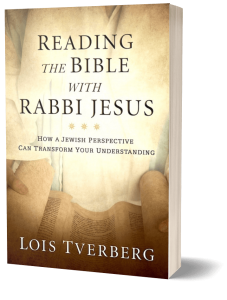“The body is a unit, though it is made up of many parts; and though all its parts are many, they form one body. So it is with Christ. For we were all baptized by one Spirit into one body – whether Jews or Greeks, slave or free – and we were all given the one Spirit to drink.” 1 Corinthians 12:12-13

A few years ago when I visited a synagogue as part of a group, we talked with some of the Orthodox Jewish boys who were studying there. They took out the Torah scrolls and we asked them what the reading was for this week. They said, “This week we are reading the story of how God brought us out of Egypt and saved us from the Egyptians.”
It struck me that the boys used the pronoun “us” as if they had been right there crossing the Red Sea. It is common in Jewish culture that when people discuss the Israelites in the Scriptures, they use the pronoun “us,” because their ancestors and they are one people.
We can learn from their example to put ourselves personally into the stories of the Bible as we read. Then when we read about the Israelites rebelling because they were tired of eating manna, we wouldn’t say, “I don’t know why God chose such a whiny people!” but rather, “My people got tired of eating manna – and I would have too because of my own sinful nature. How great of God to have showed such grace to us!”
As Paul said, we are “ingrafted branches” into God’s covenant people, and need to understand our indebtedness and connectedness to God’s people all the way back to 4000 years ago.
We should also remember to focus on our connection with other members of the body of Christ. A few years ago, when the news featured stories on the enormous amount of oppression Christians are facing all over the world, many woke up to the need to pray for our brothers and sisters in the persecuted church. Surprisingly the reporter who discovered this and worked up the story was actually Jewish! Because of his own sense of identity with his people, and his personal sense of woundedness from what was done to the Jews during the Holocaust, he wanted Christians to know what was happening to their “family”!
In modern Western culture, Christians are highly individualistic, and we find it difficult to live together when we focus so completely on our own needs. By thinking more about “we” and less about “I,” we can live out God’s command to love each other as we love ourselves.
Photo: ‘Inyan

For more on this topic, see the chapter, “Reading the Bible as a ‘We’” in Reading the Bible with Rabbi Jesus. (Baker, Grand Rapids, 2018) which is available in the En-Gedi bookstore.

